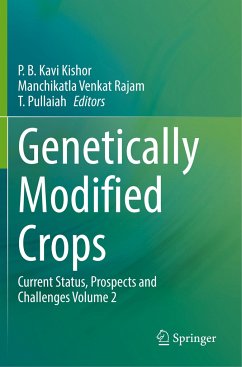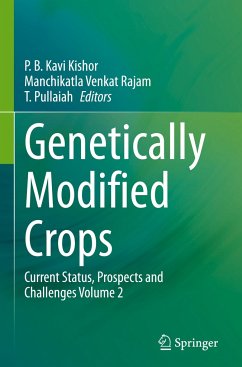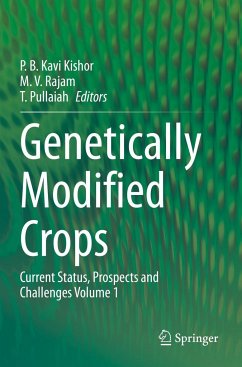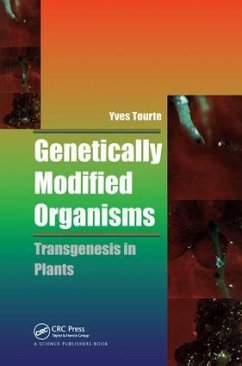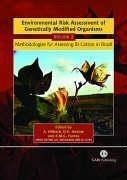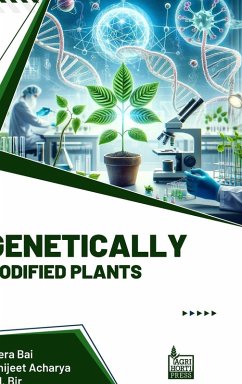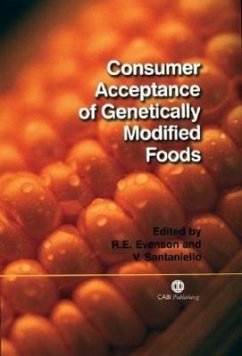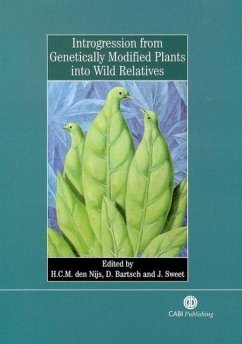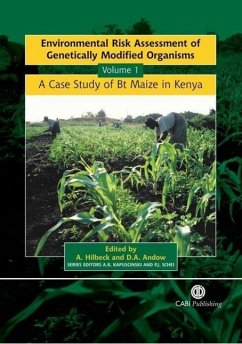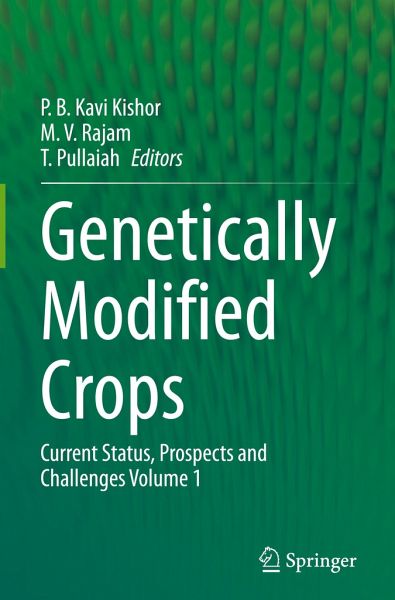
Genetically Modified Crops
Current Status, Prospects and Challenges Volume 1
Herausgegeben: Kavi Kishor, P. B.; Rajam, Manchikatla Venkat; Pullaiah, T.

PAYBACK Punkte
76 °P sammeln!
Genetic transformation is a key technology, in which genes are transferred from one organism to another in order to improve agronomic traits and ultimately help humans. However, there is apprehension in some quarters that genetically modified crops may disturb the ecosystem. A number of non-governmental organizations continue to protest against GM crops and foods, despite the fact that many organisms are genetically modified naturally in the course of evolution. In this context, there is a need to educate the public about the importance of GM crops in terms of food and nutritional security.Thi...
Genetic transformation is a key technology, in which genes are transferred from one organism to another in order to improve agronomic traits and ultimately help humans. However, there is apprehension in some quarters that genetically modified crops may disturb the ecosystem. A number of non-governmental organizations continue to protest against GM crops and foods, despite the fact that many organisms are genetically modified naturally in the course of evolution. In this context, there is a need to educate the public about the importance of GM crops in terms of food and nutritional security.
This book provides an overview of various crop plants where genetic transformation has been successfully implemented to improve their agronomically useful traits. It includes information on the gene(s) transferred, the method of gene transfer and the beneficial effects of these gene transfers and agronomic improvements compared to the wild plants. Further, it discusses the commercial prospects of these GM crops as well as the associated challenges. Given its scope, this book is a valuable resource for agricultural and horticultural scientists/experts wanting to explain to the public, politicians and non-governmental organizations the details of GM crops and how they can improve crops and the lives of farmers.
This book provides an overview of various crop plants where genetic transformation has been successfully implemented to improve their agronomically useful traits. It includes information on the gene(s) transferred, the method of gene transfer and the beneficial effects of these gene transfers and agronomic improvements compared to the wild plants. Further, it discusses the commercial prospects of these GM crops as well as the associated challenges. Given its scope, this book is a valuable resource for agricultural and horticultural scientists/experts wanting to explain to the public, politicians and non-governmental organizations the details of GM crops and how they can improve crops and the lives of farmers.



